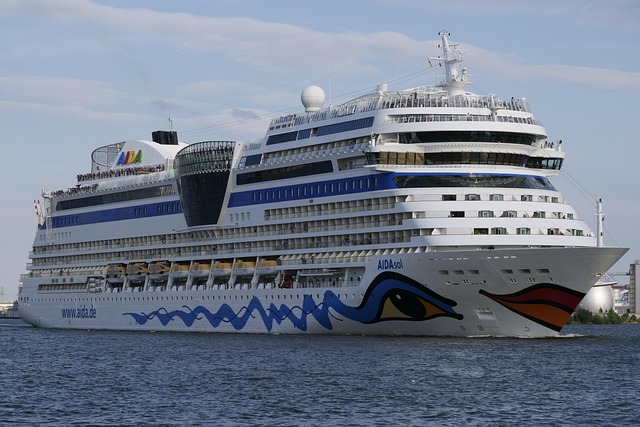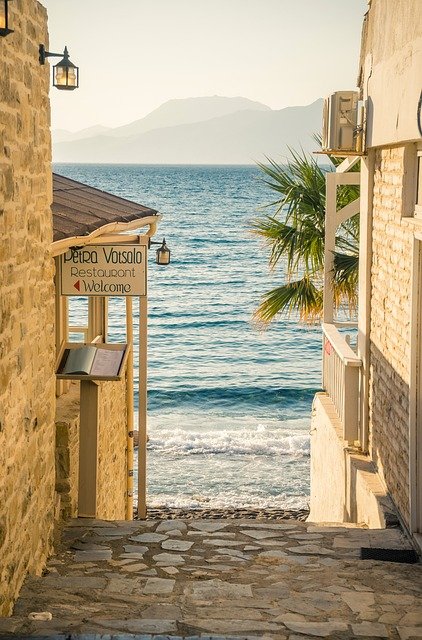Cruises for Seniors: Comfortable Travel with Care and Safety
Cruising has become an increasingly popular vacation choice for seniors seeking comfort, convenience, and comprehensive amenities in their travel experiences. These floating resorts offer a unique combination of relaxation and adventure without the hassle of constant packing and unpacking or navigating unfamiliar transportation systems. For older adults, cruise lines have developed specialized services focusing on accessibility, medical support, and age-appropriate activities that make sailing an attractive option for those looking to explore the world without compromising on comfort or safety.

Benefits of Cruises for Seniors: Comfort, Safety, and Medical Support
Cruise vacations offer several distinct advantages that make them particularly suitable for senior travelers. The all-inclusive nature of cruise packages means accommodations, meals, entertainment, and transportation between destinations are covered in one price, eliminating the need to plan these elements separately. This comprehensive approach reduces travel stress significantly.
Safety is another crucial benefit for senior travelers. Modern cruise ships are equipped with comprehensive security systems, trained staff, and clear emergency protocols. Most major cruise lines also provide medical facilities with qualified doctors and nurses available 24/7, offering peace of mind for seniors with health concerns. Many ships feature clinics that can handle common ailments, provide prescription refills, and manage basic medical emergencies before reaching port if necessary.
Additionally, cruise ships are designed with accessibility in mind. Most newer vessels include features such as wheelchair-accessible cabins, elevators serving all decks, and ramps in public areas. For seniors with mobility issues, this thoughtful design makes exploring the ship and enjoying its amenities considerably more manageable than navigating multiple hotels and transportation options during a traditional land-based vacation.
Popular Routes: Mediterranean, Northern Europe, and River Cruises
The Mediterranean remains one of the most sought-after cruise regions for seniors due to its mild climate, rich historical sites, and diverse cultural experiences. Itineraries typically include stops in iconic cities such as Barcelona, Rome, Athens, and Istanbul, allowing passengers to experience multiple countries without the logistical challenges of border crossings or changing accommodations.
Northern European cruises, particularly those exploring the Norwegian fjords, British Isles, and Baltic capitals, have also gained popularity among senior travelers. These routes offer breathtaking natural scenery and visits to historically significant cities like St. Petersburg, Stockholm, and Copenhagen. The summer sailing season provides pleasant temperatures and extended daylight hours, ideal for shore excursions.
River cruises represent an excellent alternative for seniors who prefer smaller vessels and more intimate experiences. European river cruises along the Rhine, Danube, and Seine offer close-up views of picturesque villages, vineyards, and historic castles. These smaller ships typically accommodate 100-200 passengers compared to ocean liners’ thousands, creating a more relaxed atmosphere. River cruises also dock right in city centers, eliminating long transfers from port to attractions and making exploration easier for those with limited mobility.
Onboard Conditions: Dining, Comfortable Cabins, Accessibility, and Cultural Programs
Today’s cruise ships offer accommodations designed with senior comfort in mind. Many lines feature cabins with accessible bathrooms, wider doorways, and special equipment for passengers with mobility challenges. Standard cabins typically include quality mattresses, climate control, and private bathrooms, while higher-tier accommodations may offer balconies, sitting areas, and concierge services.
Dining experiences aboard cruise ships have evolved significantly, with most vessels offering multiple restaurants and varied cuisine options. Special dietary requirements, including low-sodium, diabetic-friendly, and heart-healthy options, are readily accommodated with advance notice. Many cruise lines employ dietitians who help design appropriate menu options for various health conditions, making mealtime both enjoyable and medically suitable.
Modern ships excel in accessibility features that benefit senior passengers. Beyond accessible cabins, public areas typically include handrails, gentle inclines instead of steps where possible, and elevators serving all passenger decks. Some cruise lines offer motorized scooters for rent, allowing those with mobility limitations to navigate larger vessels comfortably.
Cultural and educational programming has become a significant attraction for senior cruisers. Many lines schedule lectures by experts in history, art, and local culture relevant to ports of call. Cooking demonstrations featuring regional cuisines, language lessons, and hands-on craft workshops provide enriching experiences that appeal to lifelong learners. Evening entertainment typically includes performances suitable for all ages, from Broadway-style shows to classical music concerts.
Leisure Formats: Short Tours, Long Voyages, and Specialized Senior Cruises
The cruise industry offers varied voyage lengths to accommodate different preferences and schedules. Short cruises lasting 3-5 days provide an excellent introduction to cruising for first-timers or those with limited vacation time. These brief itineraries typically visit one or two destinations and allow seniors to test their sea legs before committing to longer voyages.
Extended cruises ranging from 7-14 days represent the most common choice, offering a balance between comprehensive experiences and manageable timeframes. These itineraries provide sufficient time to explore multiple destinations while enjoying sea days for relaxation and onboard activities.
For those with ample time and resources, world cruises and extended voyages lasting several months offer in-depth travel experiences. These journeys attract many retirees who appreciate the opportunity to visit multiple continents while maintaining the comfort and convenience of a consistent “home base” on the ship.
Specialized senior cruises have emerged as a growing segment within the industry. These sailings focus specifically on the preferences and needs of older travelers, offering appropriate activity pacing, health-conscious dining options, and entertainment geared toward mature tastes. Some cruise lines partner with organizations like AARP to offer themed cruises featuring guest speakers, special excursions, and social events designed to facilitate connections among passengers with similar interests.
Price Range: From Affordable Packages to Premium Options
Cruise vacations span a wide price spectrum, making them accessible to seniors with varying budget constraints. Inside cabins on mainstream cruise lines during off-peak seasons can start as low as $75-150 per person per night, offering considerable value when considering the inclusion of accommodations, meals, and entertainment. Mid-range options with ocean views or balconies typically range from $150-300 per person nightly, while luxury lines with enhanced amenities and more personalized service generally start at $300-500 per night.
| Cruise Type | Provider Examples | Price Range (per person/day) | Key Features |
|---|---|---|---|
| Budget | Carnival, MSC | $75-150 | Basic amenities, larger ships, multiple dining options |
| Mid-Range | Royal Caribbean, Princess, Holland America | $150-300 | Enhanced service, more spacious cabins, specialty restaurants |
| Premium | Celebrity, Viking Ocean | $250-400 | Upscale amenities, inclusive packages, smaller ships |
| Luxury | Silversea, Seabourn, Regent | $400-1,000+ | All-inclusive pricing, personalized service, gourmet dining |
| River Cruises | Viking River, AmaWaterways | $300-500 | Intimate ships, included excursions, centrally located ports |
Prices, rates, or cost estimates mentioned in this article are based on the latest available information but may change over time. Independent research is advised before making financial decisions.
Many cruise lines offer special discounts for seniors, typically defined as passengers aged 55 or 62 and older, depending on the company. Additional savings may be available through early booking incentives, last-minute deals, or past passenger loyalty programs. When comparing cruise costs, it’s important to consider what’s included—some premium and luxury lines have higher base prices but include elements like alcoholic beverages, gratuities, shore excursions, and even airfare that would be extra costs on budget-oriented ships.
Cruising offers seniors a compelling travel option that balances adventure with comfort, independence with support, and variety with convenience. With options spanning different price points, durations, and destinations, cruise vacations can be tailored to accommodate various preferences, physical abilities, and interests, making them an excellent choice for older adults looking to explore the world with maximum enjoyment and minimal stress.




